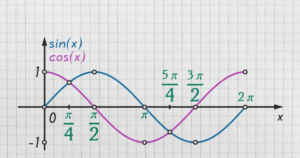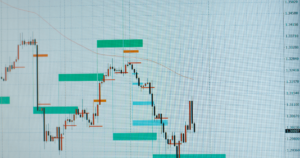Leverage is a fundamental aspect of forex trading that has attracted many retail investors. It allows traders to control larger positions with a smaller amount of capital, amplifying potential profits. However, leverage also magnifies the risks involved in trading and can lead to substantial losses if not managed properly. This article will explore the concept of leverage in forex trading, discuss its benefits and drawbacks, and address the question of whether it’s possible to trade forex without leverage.
Understanding Leverage in Forex Trading
Leverage is essentially a loan provided by a forex broker that enables traders to open positions larger than their account balance. It is expressed as a ratio, such as 50:1 or 100:1, indicating the amount of leverage available. For example, with a 100:1 leverage ratio, a trader can control a position worth $100,000 with a margin deposit of $1,000.
The primary purpose of leverage is to maximize potential returns. By using leverage, traders can amplify their gains when the market moves in their favor. However, it’s important to note that leverage also increases the potential losses. If the market moves against a leveraged position, losses can accumulate rapidly, and traders may experience margin calls.
The Role of Margin in Leverage
Margin is the amount of money required to open and maintain a leveraged position. It represents a fraction of the total value of the position and serves as collateral for the loan provided by the broker. The margin requirement is typically expressed as a percentage, such as 1% or 2%.
When trading with leverage, traders must have sufficient margin in their account to cover potential losses. If the losses on a position exceed the available margin, a margin call is triggered, requiring additional funds to be deposited or the position to be closed.
Pros and Cons of Trading with Leverage
Trading forex with leverage has both advantages and disadvantages. Here are some key points to consider:
Benefits of Leverage:
- Increased Profit Potential: Leverage allows traders to control larger positions and potentially earn higher profits when the market moves in their favor.
- Access to Market Opportunities: Leverage enables traders with limited capital to participate in the forex market and take advantage of price movements.
- Enhanced Trading Flexibility: Leverage provides traders with the ability to diversify their strategies and trade multiple currency pairs simultaneously.
Drawbacks of Leverage:
- Higher Risk of Loss: Leveraged trading significantly magnifies the impact of market fluctuations, increasing the risk of substantial losses.
- Potential for Margin Calls: If the market moves against a leveraged position, traders may face margin calls, requiring additional funds or position liquidation.
- Increased Emotional Pressure: Trading with leverage can heighten emotional stress, as losses are amplified, and decisions may be influenced by fear or greed.
Trading Forex Without Leverage
While leverage is a common feature offered by forex brokers, it is possible to trade forex without leverage. However, not all brokers provide this option, so finding a broker that allows unleveraged trading can be a challenge.
Trading without leverage means that traders would need to fully fund their positions, requiring substantial capital. Without leverage, the potential profits from each trade are limited, making it more challenging to generate significant returns. This approach is typically favored by investors who prioritize capital preservation and are willing to accept lower potential gains.
Who Should Consider Trading Without Leverage?
Trading forex without leverage may be suitable for certain types of traders:
- Long-Term Investors: Traders with a long-term investment horizon and a focus on capital preservation may opt for trading without leverage. They aim to benefit from the long-term growth potential of currencies while minimizing the impact of short-term market volatility.
- Risk-Averse Traders: Individuals who are risk-averse and prefer a conservative approach to trading may choose to forgo leverage. By trading without leverage, they can reduce the risk of significant losses during adverse market conditions.
- Experienced Traders: Seasoned traders who have developed effective strategies and possess substantial trading capital may opt to trade without leverage. They can rely on their skills and market knowledge without the need for leverage to amplify their returns.
It’s important to note that the decision to trade with or without leverage depends on individual risk tolerance, trading goals, and available capital. Traders should carefully evaluate their circumstances and consider seeking professional advice before making a decision.
How to Use Leverage Safely
For traders who choose to utilize leverage, it’s crucial to employ risk management strategies to minimize potential losses. Here are some guidelines for using leverage safely:
- Select a Reliable Broker: Choose a reputable forex broker that is regulated by a recognized financial authority. Ensure the broker provides competitive leverage options and has a robust risk management framework in place.
- Understand Margin Requirements: Familiarize yourself with the margin requirements of the broker and the specific leverage ratios available for different currency pairs. Maintain sufficient margin in your account to cover potentiallosses.
- Set Realistic Risk Limits: Establish clear risk limits for each trade and adhere to them. Avoid risking a significant portion of your trading capital on a single trade. Consider using stop-loss orders to automatically exit positions if the market moves against you.
- Monitor Market Conditions: Stay informed about market developments and news that may impact your trades. Be cautious during periods of high volatility or significant economic events that can cause rapid price movements.
- Practice Proper Position Sizing: Determine the appropriate position size based on your account balance and risk tolerance. Avoid overleveraging by using a conservative position sizing approach.
- Continuous Learning and Evaluation: Forex trading is a dynamic and evolving field. Continuously educate yourself about risk management techniques, trading strategies, and market analysis. Regularly evaluate your trading performance and adjust your approach as needed.
Common Queries About Trading Forex Without Leverage
1. Can I trade forex without leverage?
Yes, it is possible to trade forex without leverage, although not all brokers offer this option. Trading without leverage requires fully funding your positions, which may require substantial capital.
2. Why would someone choose to trade without leverage?
Traders who prioritize capital preservation, have a long-term investment horizon, or prefer a conservative approach to trading may choose to forgo leverage. Trading without leverage reduces the risk of substantial losses during adverse market conditions.
3. Are there any advantages to trading without leverage?
Trading without leverage limits the potential losses on each trade and can provide a more stable and controlled trading experience. It may be suitable for risk-averse traders and those with a long-term investment outlook.
4. How can I use leverage safely?
To use leverage safely, choose a reliable broker, understand margin requirements, set realistic risk limits, monitor market conditions, practice proper position sizing, and continuously learn and evaluate your trading performance.
Key Takeaways
- Leverage is a tool that allows forex traders to control larger positions with a smaller amount of capital. It amplifies both potential profits and losses.
- Trading without leverage is possible but may require significant capital. It is favored by investors who prioritize capital preservation and are willing to accept lower potential gains.
- The decision to trade with or without leverage depends on individual risk tolerance, trading goals, and available capital. Consider seeking professional advice before making a decision.
- When using leverage, it’s essential to employ proper risk management strategies, choose a reliable broker, understand margin requirements, set realistic risk limits, and continuously learn and evaluate your trading performance.
Remember, forex trading involves inherent risks, and leveraging positions can significantly increase the potential for losses. It’s crucial to approach trading with caution, educate yourself, and always practice risk management to protect your capital and achieve long-term success.








